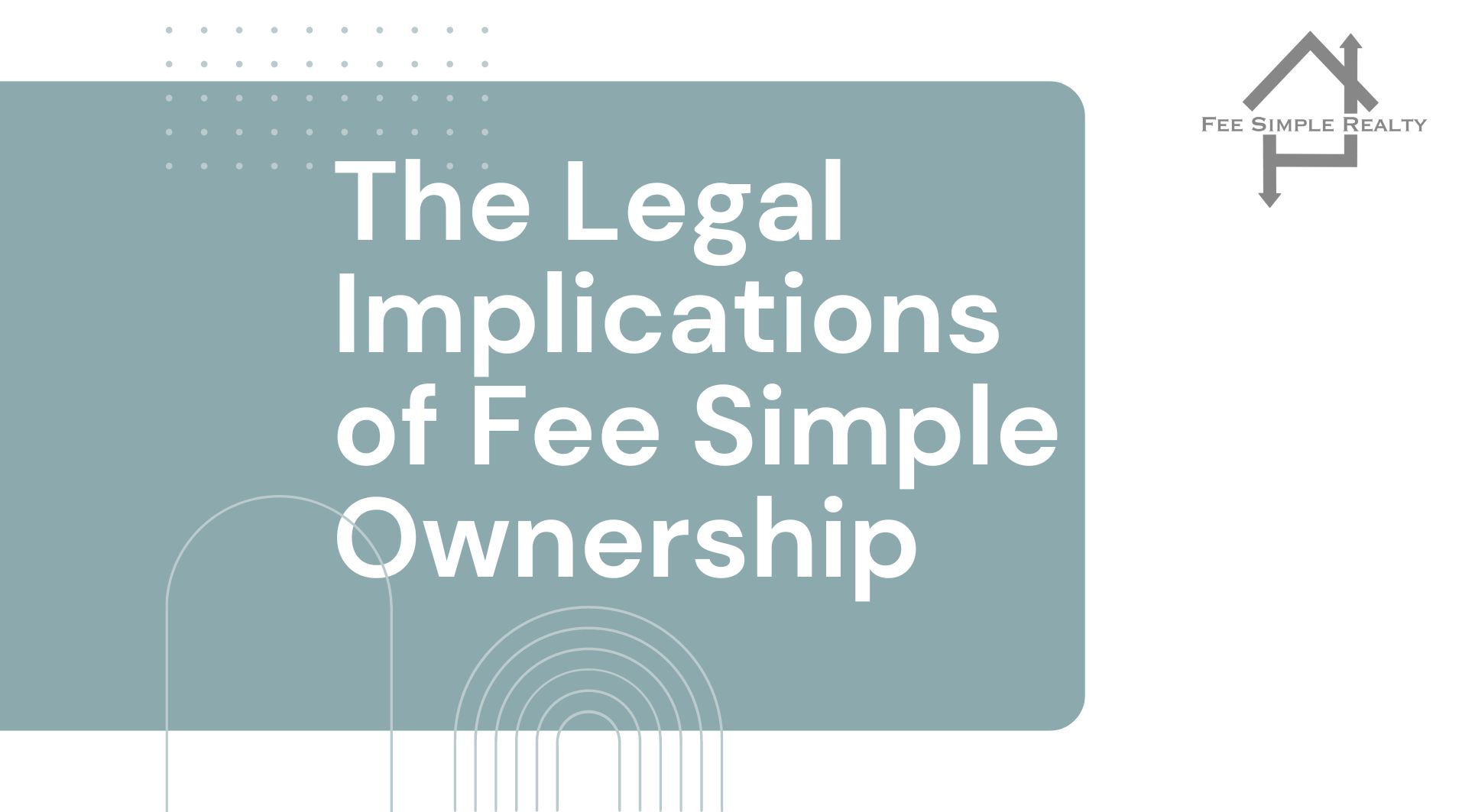The Legal Implications of Fee Simple Ownership
Fee simple ownership is the most common and complete form of property ownership, granting the owner extensive rights over their property. However, with these rights come various legal implications and responsibilities. This post will explore the legal aspects of fee simple ownership, helping you understand your rights, obligations, and potential legal issues.
Overview: Legal Aspects of Fee Simple Ownership
Key Points:
- Property Rights and Responsibilities
- Zoning and Land Use Regulations
- Easements and Encumbrances
- Property Taxes
- Liability and Insurance
Detailed Breakdown: Legal Implications of Fee Simple Ownership
1. Property Rights and Responsibilities
Simple Explanation: Complete control over the property, but with associated responsibilities.
In-Depth Analysis: As a fee simple owner, you have the right to use, sell, lease, or bequeath your property as you see fit. However, you also have responsibilities, such as maintaining the property and adhering to local laws and regulations. Failure to fulfill these responsibilities can result in legal issues or penalties.
Rights:
- Full control over the property
- Freedom to modify, sell, or lease the property
- Right to pass the property to heirs
Responsibilities:
- Property maintenance
- Compliance with local laws
- Payment of property taxes
2. Zoning and Land Use Regulations
Simple Explanation: Must comply with local zoning laws and land use regulations.
In-Depth Analysis: Zoning laws and land use regulations govern how you can use your property. These laws are designed to ensure orderly development and protect the interests of the community. As a fee simple owner, you must comply with these regulations, which may dictate what structures you can build, how you can use the land, and other aspects of property use.
Regulations:
- Residential, commercial, or industrial use
- Building height and density restrictions
- Environmental protections
3. Easements and Encumbrances
Simple Explanation: Other parties may have certain rights to use your property.
In-Depth Analysis: Even with fee simple ownership, your property may be subject to easements and encumbrances. Easements grant others the right to use part of your property for specific purposes, such as utility access or right-of-way. Encumbrances can include liens, which are claims against the property for unpaid debts. It’s important to be aware of any easements or encumbrances on your property and understand their implications.
Examples:
- Utility easements
- Access rights for neighbors
- Liens for unpaid debts
4. Property Taxes
Simple Explanation: Obligation to pay property taxes based on the assessed value of the property.
In-Depth Analysis: As a fee simple owner, you are responsible for paying property taxes. These taxes are based on the assessed value of your property and fund local services such as schools, roads, and public safety. Failure to pay property taxes can result in penalties, interest, and even foreclosure.
Key Points:
- Annual property tax assessments
- Potential for tax increases
- Consequences of non-payment
5. Liability and Insurance
Simple Explanation: Need for adequate insurance to protect against liability and property loss.
In-Depth Analysis: Fee simple ownership comes with potential liabilities, such as injuries that occur on your property. Homeowners insurance is essential to protect against these risks and cover potential property damage. Insurance can provide financial protection in case of accidents, natural disasters, and other unforeseen events.
Insurance Coverage:
- Liability protection
- Property damage coverage
- Additional coverage for natural disasters
Conclusion
Fee simple ownership grants extensive rights over a property, but it also comes with significant legal implications and responsibilities. Understanding these legal aspects, from zoning regulations and easements to property taxes and insurance, is crucial for protecting your investment and ensuring compliance with the law. Whether you’re a new homeowner or an experienced property owner, being aware of these legal considerations can help you navigate the complexities of property ownership in Central Florida.
Other Related Topics
If you found this information helpful, you might also be interested in learning about the impact of property location on real estate value, how to finance your first investment property, or the benefits of virtual tours in real estate. Stay tuned for more insightful real estate posts!
Contact us today or visit our Instagram | Facebook .
